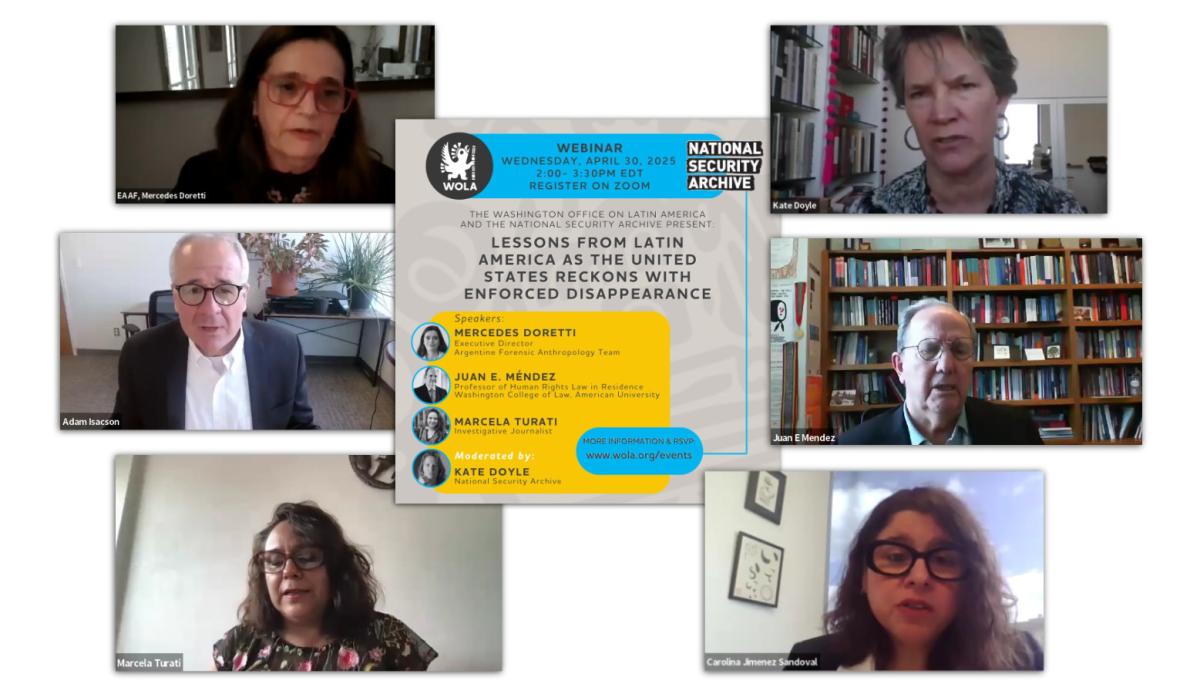Lessons from Latin America as the United States Reckons With Enforced Disappearance
Watch the recording
On April 30, the National Security Archive and the Washington Office on Latin America (WOLA) co-hosted an online conversation with three Latin American experts to learn from their experiences with enforced disappearance. The motivation behind the meeting was a growing sense of alarm, disbelief, and helplessness among many Americans as we witness the Trump administration’s unprecedented actions targeting immigrants in the United States.
At the president’s direction, U.S. government agents have seized men, women, and children for detention and deportation without due process. We have seen the images of masked security forces swarming a student outside her home, a mother driving with her kids, workers in a restaurant kitchen. To take them where? Whether the agents are from ICE, DEA, ATF, CPB, or the local police, they don’t always reveal the victim’s destination. They don’t always inform their families that they’ve taken them. They don’t always allow the victim to contact their lawyer. They don’t always bring them before a judge. And now they don’t even always imprison them in the United States. How do we make sense of this?
For those of us working in Latin America, the actions of Trump’s security forces ring a deeply disturbing bell. We can’t help but connect what is happening in our country today, right now, to a long history in the Americas of governments’ use of enforced disappearance to punish people considered dissidents. In Latin America, that could mean armed guerrillas or suspected subversives; more often it meant students, teachers, journalists, investigators, indigenous activists, opposition politicians, lawyers, priests.
But if the region has a dark history of disappearing its perceived enemies, it also has a proud and powerful tradition of fighting back. People mobilized. They organized. They created strategies to protest the disappearances, demand information, hold hearings, fight in the courts, create new laws, search for the missing, expose injustice, and tell the rest of the world what was happening.
That’s why we invited these three experts – these colleagues and friends – to speak to us. Mimi Doretti, Juan Méndez, and Marcela Turati all have direct experience with enforced disappearance and its impact on a society. We need to hear from them. We need to learn from their histories. We need to pull lessons from what they have to tell us about how to fight back.
Our conversation is archived for anyone who missed the live event. And go to WOLA’s posting about the webinar for a transcription of the some of the key remarks and a set of powerful conclusions drawn from our speakers’ presentations.

